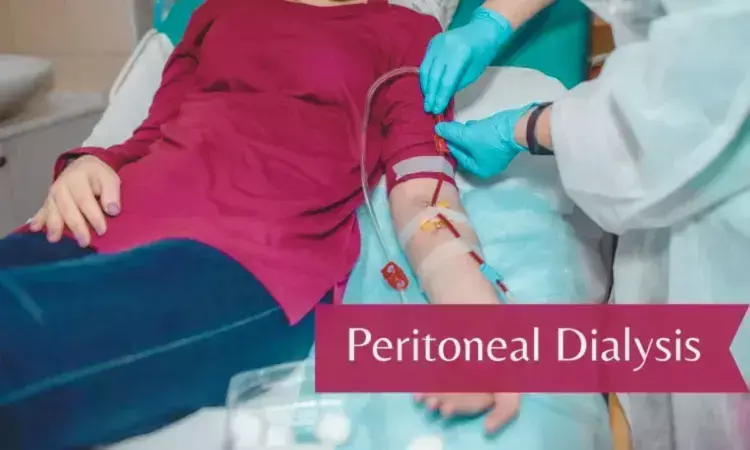- Home
- Medical news & Guidelines
- Anesthesiology
- Cardiology and CTVS
- Critical Care
- Dentistry
- Dermatology
- Diabetes and Endocrinology
- ENT
- Gastroenterology
- Medicine
- Nephrology
- Neurology
- Obstretics-Gynaecology
- Oncology
- Ophthalmology
- Orthopaedics
- Pediatrics-Neonatology
- Psychiatry
- Pulmonology
- Radiology
- Surgery
- Urology
- Laboratory Medicine
- Diet
- Nursing
- Paramedical
- Physiotherapy
- Health news
- Fact Check
- Bone Health Fact Check
- Brain Health Fact Check
- Cancer Related Fact Check
- Child Care Fact Check
- Dental and oral health fact check
- Diabetes and metabolic health fact check
- Diet and Nutrition Fact Check
- Eye and ENT Care Fact Check
- Fitness fact check
- Gut health fact check
- Heart health fact check
- Kidney health fact check
- Medical education fact check
- Men's health fact check
- Respiratory fact check
- Skin and hair care fact check
- Vaccine and Immunization fact check
- Women's health fact check
- AYUSH
- State News
- Andaman and Nicobar Islands
- Andhra Pradesh
- Arunachal Pradesh
- Assam
- Bihar
- Chandigarh
- Chattisgarh
- Dadra and Nagar Haveli
- Daman and Diu
- Delhi
- Goa
- Gujarat
- Haryana
- Himachal Pradesh
- Jammu & Kashmir
- Jharkhand
- Karnataka
- Kerala
- Ladakh
- Lakshadweep
- Madhya Pradesh
- Maharashtra
- Manipur
- Meghalaya
- Mizoram
- Nagaland
- Odisha
- Puducherry
- Punjab
- Rajasthan
- Sikkim
- Tamil Nadu
- Telangana
- Tripura
- Uttar Pradesh
- Uttrakhand
- West Bengal
- Medical Education
- Industry
Rare Fungal Infection Triggers Peritonitis in Dialysis Patient: First Report of Acremonium Sclerotigenum Involvement

China: In a significant clinical finding, researchers from The Second Affiliated Hospital of Anhui Medical University, China, have documented the first known case of peritoneal dialysis–associated peritonitis (PDAP) caused by the rare fungus Acremonium sclerotigenum. The case report, published in BMC Nephrology by Dr. Ju Wang and colleagues, sheds light on a previously unrecognized fungal pathogen implicated in PDAP and highlights the importance of early pathogen identification and prompt intervention.
The case involved a 79-year-old male undergoing maintenance peritoneal dialysis for end-stage renal disease. The patient presented with persistent lower abdominal pain, diarrhea, and cloudy dialysate—common symptoms of peritonitis. Initial lab findings revealed an elevated white blood cell count in the peritoneal fluid, raising suspicion of infection. Although the patient had not received antibiotics before admission, empiric antibacterial treatment was initiated using intravenous ceftriaxone and vancomycin added to the dialysis fluid.
When the condition failed to improve after five days, antifungal therapy with voriconazole was introduced. Cultures obtained on the day of admission later confirmed the presence of Acremonium sclerotigenum, a saprophytic fungus commonly found in soil and plants. This rare pathogen is known to cause superficial infections, such as onychomycosis, but is an unusual culprit in invasive infections like peritonitis.
Following the identification of the fungus, the peritoneal dialysis catheter was removed, and the patient was transitioned to hemodialysis via a semi-permanent neck catheter. The voriconazole dose was carefully adjusted based on therapeutic drug monitoring, and the antifungal therapy was continued for four weeks. Post-treatment follow-up nine months later confirmed that the patient remained asymptomatic and continued with hemodialysis without complications.
The case emphasizes the critical need for early diagnosis and aggressive treatment of fungal peritonitis, particularly given the high mortality associated with delayed catheter removal. According to the 2022 guidelines by the International Society for Peritoneal Dialysis (ISPD), immediate catheter removal and targeted antifungal therapy are key to improving outcomes in such cases.
Though Acremonium sclerotigenum is environmentally widespread, its identification in PDAP is unprecedented. The authors note the challenge of treating infections caused by this species due to its resistance to common antifungals like fluconazole and flucytosine. Voriconazole and posaconazole appear to be more effective options based on current evidence.
The case contributes to the growing body of literature on fungal peritonitis. It emphasizes the role of environmental fungi as emerging opportunistic pathogens in immunocompromised patients. It also highlights the need for further research and clear treatment protocols for rare fungal infections in peritoneal dialysis patients.
Reference:
Wang, J., Cheng, Y., Yan, Q. et al. Peritoneal dialysis–associated peritonitis caused by acremonium sclerotigenum: a case report. BMC Nephrol 26, 264 (2025). https://doi.org/10.1186/s12882-024-03884-5
Dr Kamal Kant Kohli-MBBS, DTCD- a chest specialist with more than 30 years of practice and a flair for writing clinical articles, Dr Kamal Kant Kohli joined Medical Dialogues as a Chief Editor of Medical News. Besides writing articles, as an editor, he proofreads and verifies all the medical content published on Medical Dialogues including those coming from journals, studies,medical conferences,guidelines etc. Email: drkohli@medicaldialogues.in. Contact no. 011-43720751


